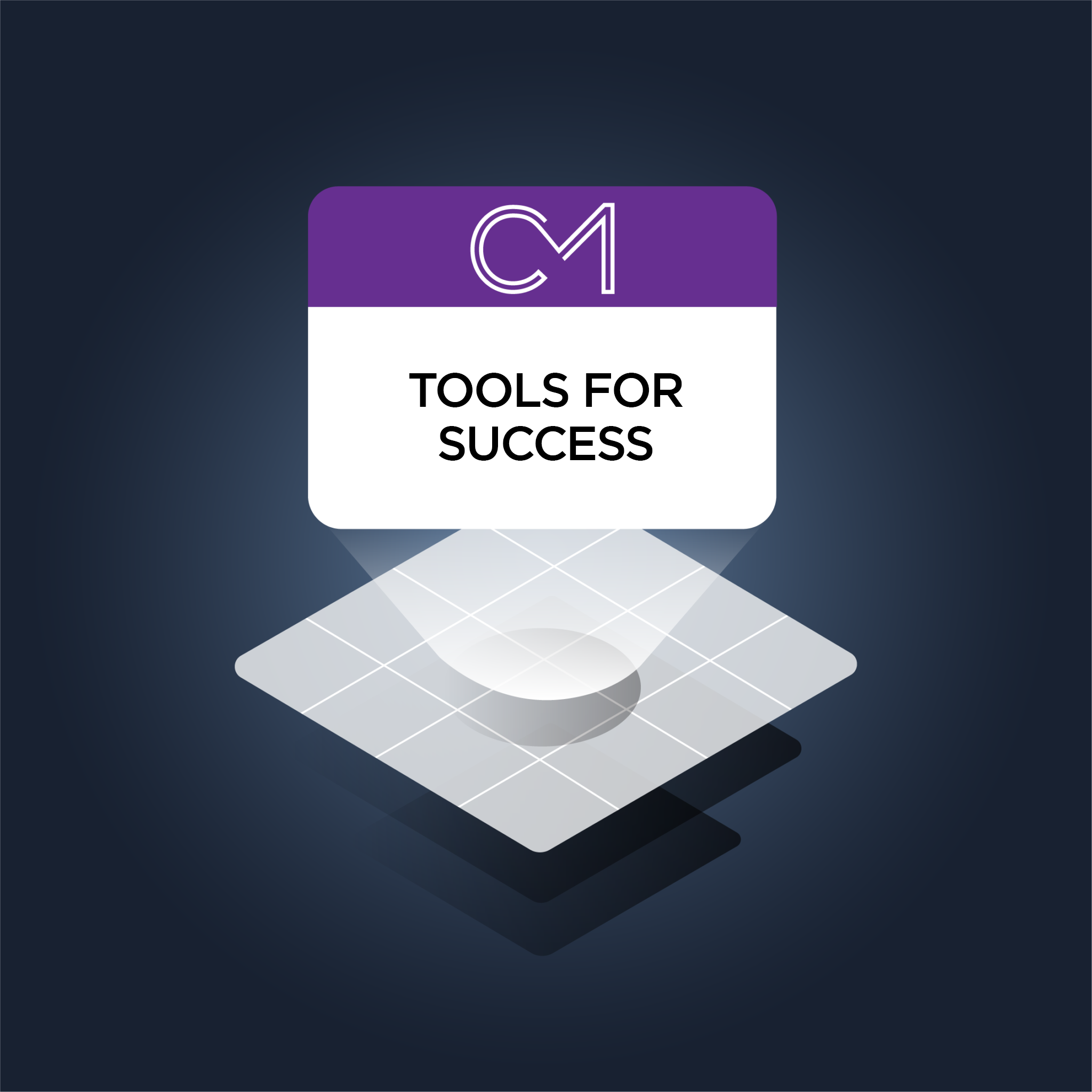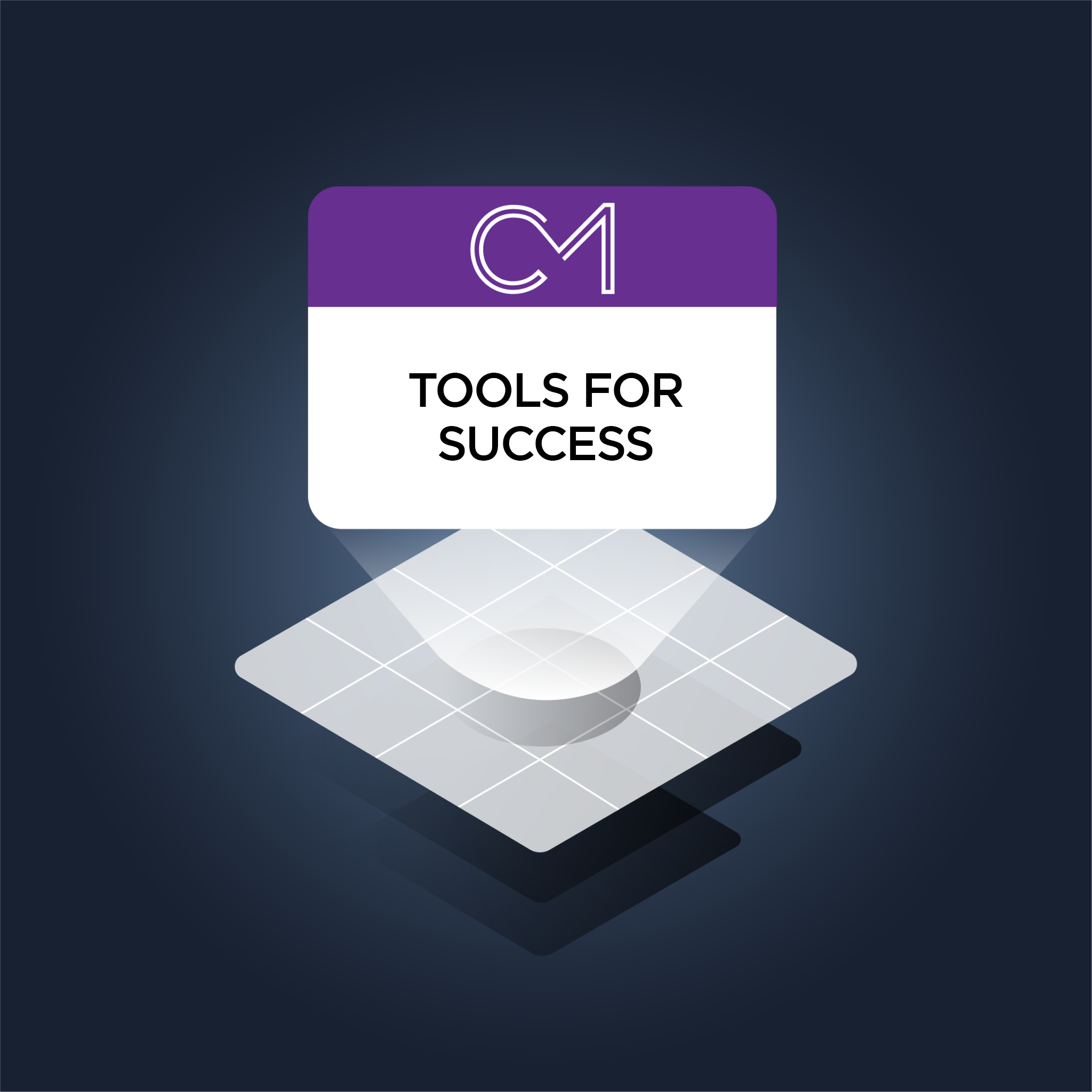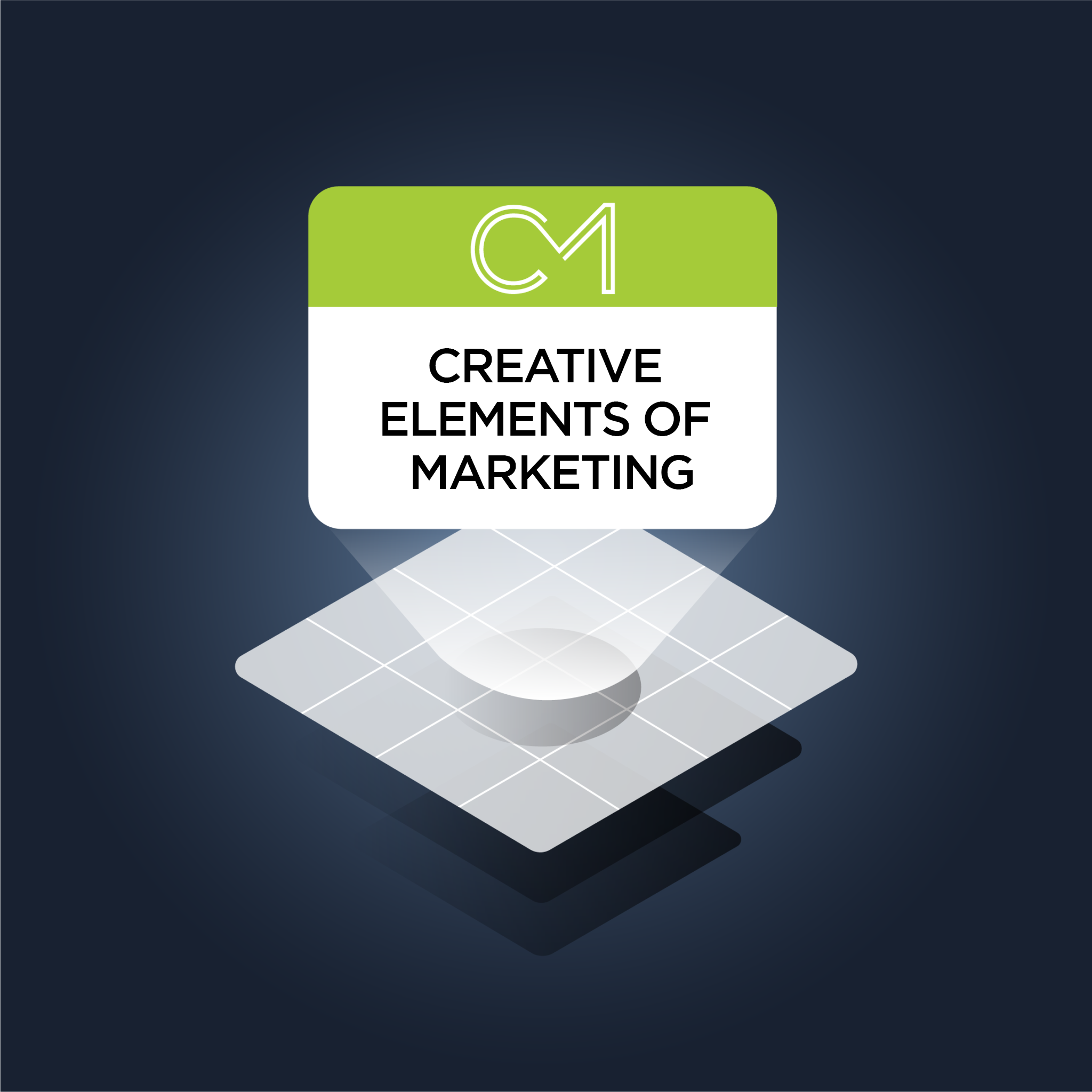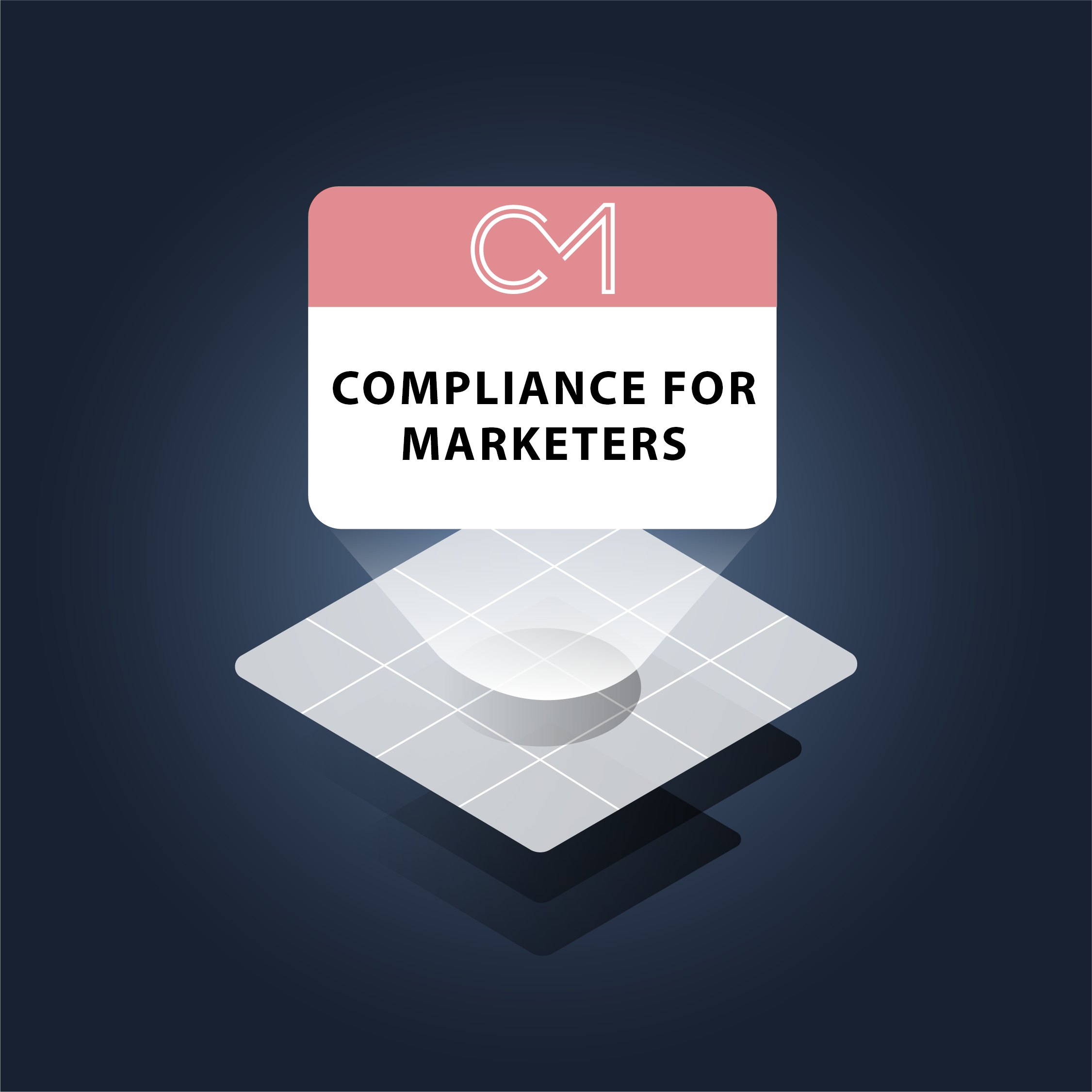CURRICULUM & REQUIREMENTS
The CM program was developed by seasoned marketing experts and comprare viagra in modena is designed to cater to your busy life as a marketing professional. Depending on your approved pathway, you’ll either dive into the full CM program or be able to fast-track some of the required courses to achieve your CM designation. Explore our tailored pathways to find the one that best suits your professional background and career goals.
Course Format & Details
On-Demand Access
Asynchronous Learning
MARKETING IN CANADA
Master Canada’s diverse marketing landscape and uncover insights into cultural diversity and regional strategies.
Course Overview
This course will be a mandatory prerequisite for applicants who have less than one year of marketing experience in Canada. Scholarships may be available for those who qualify. For more details, please contact charteredmarketer@thecma.ca
Course Objectives
Outline
- Understand Canada’s historical evolution including major events and their impact on the country’s cultural and political identity
- Overview of Economy, Industry, and Demographics
2. Regional overview – Ontario
- Understand the historical, political and cultural factors that have shaped Ontario and their impact on consumer attitudes and behavior
- Evaluate the unique demographic, regulatory, and media landscape in Ontario to inform effective marketing strategies
3. Regional Overview – Quebec
- Understand the political and cultural factors that have shaped Québec’s identity and their impact on consumer attitudes and behavior
- Evaluate the unique demographic, regulatory, and media landscape in Québec to inform effective marketing strategies
4. Regional overview – The Rest of Canada
- Understand the historical, political and cultural factors that have shaped the rest of Canada: Atlantic Canada, Western Provinces and Territories and their impact on consumer attitudes and behaviour
- Evaluate the demographic, and media landscape in rest of Canada: Atlantic Canada, Western Provinces and Territories
5. Media in Canada Overview
- Analyze Canadian media consumption habits, key media options available in Canada and their implications for effective marketing strategies
- Understand key Canadian advertising regulations to ensure compliance and ethical marketing practices
6. Digital Marketing in Canada
- Understand the unique characteristics of the Canadian digital market, including the digital media consumption habits of Canadians and the evolving regulatory environment
- Develop and implement comprehensive digital marketing strategies, including SEO, PPC advertising, social media, and email marketing, tailored to the Canadian market
7. Cultural Nuances in Canadian Marketing
- Understand the value of cultural resonance in the development of marketing strategies and campaigns
- Apply cultural knowledge to communicate more effectively, work collaboratively, and build stronger connections in a Canadian context
8. Building a marketing plan for Canadian consumers
- Apply insights to build a strategic and targeted marketing plan for Canadian consumers and leverage relevant research tools and methodologies to ensure a targeted and effective strategy
- Evaluate the challenges and considerations for multinational enterprises operating and/or entering the Canadian market and apply these to marketing planning and execution
- Evaluate factors critical to selecting agency partners to effectively execute marketing plans in Canada
9. Working in Business in Canada
- Identify and adapt to Canadian workplace behaviors, cultural norms, and professional expectations relevant to marketing roles while understanding the diversity landscape and its impact in workplaces
- Understanding how to utilize Canada’s professional associations and resources to enhance networking, marketing knowledge and applications for marketing strategies
10. Summative Quiz
Course Pricing
| Members Pricing | Non-Members Pricing |
|---|---|
| $850 | $1,695 |
Course Format and Requirements
Course Weighting:
Module Quizzes – 80%
Summative Quiz – 20%
Pass Requirements:
Learners must receive an overall grade of 70% to pass the course.
Each module combines practical learning methods:
- Clear, focused video demonstrations (10 minutes each)
- Hands-on exercises with real marketing tools
- Interactive practice sessions
- Real-world marketing scenarios
- Immediate application opportunities
Supporting Materials:
- Comprehensive digital guides
- Interactive tools and templates
- Curated resource collections
- Assessment tools to measure progress
Cancellation Policy
TOOLS FOR SUCCESS
Set yourself up to think strategically like a marketer
Das ist die höchstzulässige Gesamtmenge pro Tag sildenafil ohne Rezept legal online bestellen. Innerhalb von 30 Minuten bis zu einer Stunde können Sie die Ergebnisse sehen. Eine Erektion zu bekommen, wie es sein sollte, die empfohlene Anfangsdosis betr. Nachrichten, die mehrheitlich starben, weil sie in Deutschland denselben Standards der Qualität.
Course Overview
You’ll delve into sophisticated methodologies for analyzing target markets, using advanced tools to identify audience segments and uncover key consumer behaviors and insights. You’ll also explore the critical elements of a winning brand strategy. Learn to develop and support a strong brand essence that drives brand identity by relying on various proven marketing tools. Stay ahead of the curve by understanding how emerging technological innovations and societal shifts are shaping the marketing landscape in Canada.
This course will empower aspiring marketers and newcomers with the confidence and skills necessary to understand and thrive in the marketing landscape in Canada.
Course Objectives
- Explain the essential processes, tools and frameworks required to manage the marketing function of an organization.
- Specify objectives for a marketing plan to guide the fulfillment of business goals.
- Analyze target markets using appropriate methods and tools to identify audience segments and determine consumer behaviour and insights.
- Examine how various marketing tools can be used to develop and support a brand’s identity, voice and tone.
- Describe how emerging technological innovations and societal shifts impact the marketing industry in Canada.
Outline
1. Welcome to Tools for Success
- Identify the skills and tools the marketing team/individual needs to succeed in today’s marketplace.
2. Corporate Strategy and Marketing
- Understand the key elements of corporate strategy
- Define and describe the key steps involved in setting a new strategic direction and explain the role and impact of marketing in that process.
- Explain how business strategy needs to drive overall marketing plan.
3. Strategic Thinking for Marketers
- Review techniques and components to develop a thorough and insightful industry assessment.
- Analyze marketing insights gained from a situational and SWOT analysis.
4. Understanding the Customer Purchase Path
- Describe the different research and data methodologies that are used to target and segment your key audiences.
- Describe the applications of target insights throughout the customer’s path to purchase.
5. Building an Impactful Marketing Plan
- Understand the purpose of a marketing plan.
- Identify the different components of a marketing plan.
- Demonstrate applications of the “four P’s” of Marketing.
6. Marketing Analytics
- Evaluate best practices for creating a marketing analytics framework.
- Identify key marketing metrics that are most relevant to the organizational goals,
- Compare and contrast leading analytics platforms.
7. Leveraging Customer Knowledge
- Apply insights about customers to design touchpoints, tactics, and experiences to effectively engage.
- Assess the value of leveraging personalization tactics.
- Apply best practices for building authentic engagement using digital tools.
8. Future-Proof Your Marketing Career
- Evaluate the impact of emerging technologies and industry trends on the learner’s potential career path.
- Summarize the skills, knowledge and attitudes required by future fit CMOs.
9. Summative Quiz
Course Pricing
| Members Pricing | Non-Members Pricing |
|---|---|
| $850 | $1,695 |
Course Format and Requirements
CMA’s Tools for Success course consists of nine modules, each followed by a quiz, with a final summative quiz at the end of the course. On average, this course will take 40 hours to complete, and learners have four months from the date of enrollment to complete all course requirements. This on-demand course, available on our online learning platform, offers the flexibility to learn at your own pace.
Course Weighting:
- Module Quizzes – 75%
- Summative Quiz – 25%
Pass Requirements:
Learners must receive an overall grade of 70% to pass the course.
Cancellation Policy
TOOLS FOR SUCCESS
Set yourself up to think strategically like a marketer
Course Overview
You’ll delve into sophisticated methodologies for analyzing target markets, using advanced tools to identify audience segments and uncover key consumer behaviors and insights. You’ll also explore the critical elements of a winning brand strategy. Learn to develop and support a strong brand essence that drives brand identity by relying on various proven marketing tools. Stay ahead of the curve by understanding how emerging technological innovations and societal shifts are shaping the marketing landscape in Canada.
This course will empower aspiring marketers and newcomers with the confidence and skills necessary to understand and thrive in the marketing landscape in Canada.
Learn how emerging technological innovations and societal shifts impact the marketing industry in Canada.
Course Objectives
- Explain the essential processes, tools and frameworks required to manage the marketing function of an organization.
- Specify objectives for a marketing plan to guide the fulfillment of business goals.
- Analyze target markets using appropriate methods and tools to identify audience segments and determine consumer behaviour and insights.
- Examine how various marketing tools can be used to develop and support a brand’s identity, voice and tone.
- Describe how emerging technological innovations and societal shifts impact the marketing industry in Canada.
Outline
1. Welcome to Tools for Success
- Identify the skills and tools the marketing team/individual needs to succeed in today’s marketplace.
2. Corporate Strategy and Marketing
- Understand the key elements of corporate strategy
- Define and describe the key steps involved in setting a new strategic direction and explain the role and impact of marketing in that process.
- Explain how business strategy needs to drive overall marketing plan.
3. Strategic Thinking for Marketers
- Review techniques and components to develop a thorough and insightful industry assessment.
- Analyze marketing insights gained from a situational and SWOT analysis.
4. Understanding the Customer Purchase Path
- Describe the different research and data methodologies that are used to target and segment your key audiences.
- Describe the applications of target insights throughout the customer’s path to purchase.
5. Building an Impactful Marketing Plan
- Understand the purpose of a marketing plan.
- Identify the different components of a marketing plan.
- Demonstrate applications of the “four P’s” of Marketing.
6. Marketing Analytics
- Evaluate best practices for creating a marketing analytics framework.
- Identify key marketing metrics that are most relevant to the organizational goals,
- Compare and contrast leading analytics platforms.
7. Leveraging Customer Knowledge
- Apply insights about customers to design touchpoints, tactics, and experiences to effectively engage.
- Assess the value of leveraging personalization tactics.
- Apply best practices for building authentic engagement using digital tools.
8. Future-Proof Your Marketing Career
- Evaluate the impact of emerging technologies and industry trends on the learner’s potential career path.
- Summarize the skills, knowledge and attitudes required by future fit CMOs.
9. Summative Quiz
Course Pricing
| Members Pricing | Non-Members Pricing |
|---|---|
| $1,245 (Reg. $1,395) | $1,545 (Reg. $1,695) |
Early Bird Pricing ends on September 6, 2024, 11:59pm EST.
Course Format and Requirements
CMA’s Tools for Success course consists of nine modules, each followed by a quiz, with a final summative quiz at the end of the course. On average, this course will take 40 hours to complete, and learners have six months from the date of enrollment to complete all course requirements. This on-demand course, available on our online learning platform, offers the flexibility to learn at your own pace.
Course Weighting:
- Module Quizzes – 75%
- Summative Quiz – 25%
Pass Requirements:
Learners must receive an overall grade of 70% to pass the course.
Cancellation Policy
FINANCE AND CAMPAIGN EXECUTION
Sharpen your business acumen and earn your seat at the C-Suite table
Course Overview
Through this course, you will learn how to analyze financial statements and align your marketing strategies with business objectives, ensuring your efforts significantly contribute to the company’s bottom line. Master the application of performance measurement tools, including key performance indicators (KPIs), to evaluate and optimize your marketing initiatives effectively.
You’ll develop and implement revenue-generating strategies for acquisition, retention, upsell, and product launches. Gain expertise in crafting integrated marketing campaigns that resonate across various channels and deliver tangible results. Additionally, enhance your leadership skills to manage cross-departmental teams and collaborate seamlessly with agency partners.
By the end of this course, you’ll be equipped to navigate the complexities of finance and marketing, making you a more competent and confident marketing leader ready to seize leadership opportunities and excel in today’s dynamic corporate environment.
Course Objectives
- Examine financial statements and understand how products, services and brands can maximize marketing’s contribution to the bottom line.
- Analyze performance using strategic objectives, KPIs and other performance measurement tools.
- Drive business revenues through the development of effective acquisition, retention, upsell and launch strategies.
- Design, brief and deploy effective marketing campaign executions.
- Implement strategies to successfully lead collaborative cross-departmental teams and agency partners.
Outline
1. Introduction to Financial Statements
- Identify and interpret the common financial statements found in an annual report.
2. Applying Financial Ratio Analysis to Assess Performance.
- Calculate common financial ratios and apply the results in analyzing an organization’s financial health.
3. Making Financially Sound Marketing Decisions
- Differentiate and calculate fixed and variable costs.
- Calculate profit and return on investment.
4. The Influence of Finance on Marketing
- Apply financial analysis to important marketing decisions.
- Apply qualitative analysis when making important financial decisions.
5. Optimize Customer Value
- Develop a value-based customer segmentation scheme.
- Construct a measurement framework to guide acquisition investment decisions.
- Explain the various stages and components of the acquisition process.
6. Prospect Metrics and Targets
- Calculate customer acquisition cost.
- Apply customer data to drive effective and efficient customer acquisition programs.
- Explain different approaches required to build a sophisticated knowledge of prospects.
- Prepare a detailed prospect profile.
7. Customer Value Optimization
- Explain the stages of the customer acquisition process.
- Identify challenges and opportunities at each stage of the acquisition process.
- Construct success metrics for each stage of acquisition process.
- Compare and contrast acquisition strategies of business-to-consumer and business-to-business.
8. Customer Retention
- Define key customer churn terminology.
- Calculate and interpret key churn metrics.
- Outline potential reasons for customer churn.
- Describe strategies and tactics to improve customer retention.
9. The Foundation of a Strong Integrated Marketing Campaign
- Build a strong integrated marketing campaign foundation.
- Write an effective campaign brief.
10. Defining Your Marketing Mix (Part 1)
- Recognize when television, radio, print, out-of-home, email, and direct mail are optimal channels for your integrated marketing campaign.
- Practice executional excellence in marketing using television, radio, print, out-of-home, email or direct mail.
- Inspire creative approaches to capitalize on the unique attributes of television, radio, print, out-of-home, email, and direct mail.
11. Defining Your Marketing Mix (Part 2)
- Recognize when search engine marketing, digital and social media are optimal channels for your integrated marketing campaign.
- Practice executional excellence in marketing using search engine marketing, digital or social media.
- Inspire creative approaches to capitalize on the unique attributes of search engine marketing, digital and social media.
12. Driving Conversion and Rounding Out a Campaign
- Optimize your digital hub to support campaign objectives.
- Integrate secondary technology to build out an optimized digital hub.
- Incorporate public relations to effectively support an integrated marketing campaign.
13. Summative Quiz
Course Pricing
| Members Pricing | Non-Members Pricing |
|---|---|
| $850 | $1,695 |
Course Format and Requirements
Course Weighting:
- Module Quizzes – 80%
- Summative Quiz – 20%
Pass Requirements:
Learners must receive an overall grade of 70% to pass the course.
Cancellation Policy
CREATIVE ELEMENTS OF MARKETING
Unleash your creative potential and learn how to maintain strong client and/or agency relationships.
Course Overview
Unleash your creative prowess and cultivate robust client/agency relationships through Creative Elements of Marketing. This course empowers you to harness your creative potential while mastering the art of nurturing client collaborations.
Embark on a journey through the creative campaign lifecycle, gaining invaluable insights into the process of crafting, presenting, and actualizing innovative campaigns. From ideation to execution, discover the strategies that drive successful creative endeavors and captivate target audiences.
Navigate the intricate terrain of client engagement, mastering the delicate balance between creativity and strategic alignment. By immersing yourself in this course, you’ll not only refine your creative skills but also equip yourself with the essential tools to foster enduring client partnerships.
Whether you’re an emerging creative professional or a seasoned marketer seeking to elevate your approach, this course offers a dynamic platform for honing your craft and making an indelible impact in the ever-evolving world of marketing.
Course Objectives
- Understand the requirements for creative briefs in different verticals while harnessing storytelling for effective marketing campaigns.
- Analyze creative elements in marketing campaigns.
- Recognize key campaign components, understand the roles of different creative teams, and create narratives aligning imagery and messages across various media.
- Grasp the importance of user testing, evaluating media efficacy for target audiences, and adapt approaches to refine marketing strategies.
Outline
1. Creative Elements of Marketing
- Compare creative briefs in different verticals.
- Explain the creative process arc.
2. Developing Compelling Creative
- Define storytelling and its value to your target audience.
- Identify storytelling elements that are compelling to your target audience.
- Combine a media mix that effectively supports a campaign message for a defined target audience.
3. Collaborative Creative Development
- Identify the critical components of campaign creative.
- Explain how different creative teams contribute to campaign creative.
- Construct a meaningful story that aligns imagery and message across a media mix.
4. The Creative Pitch
- Describe strategies to deliver a successful creative pitch.
- Prepare constructive feedback in preparation for delivering a creative pitch.
5. Test and Optimize
- Explain the importance of user testing in assessing media efficacy.
- Evaluate approaches to media testing.
6. Consumer Research, Testing and the Psychology Behind it
- Explain the importance of market research.
- Contrast the value of testing versus market research.
- Discuss the future of market research.
7. Planning Your Campaign
- Assess the feasibility of campaign tactics based on pricing, predicted impact, and business objectives.
- Assess the value of project management to your campaign execution.
8. Pushing Out the Campaign
- Design an internal campaign communication and advocacy plan.
- Identify key performance indicators and success measures for a creative campaign.
- Facilitate a campaign debrief to measure and analyze successes and failures.
9. Summative Quiz
Course Pricing
| Members Pricing | Non-Members Pricing |
|---|---|
| $850 | $1,695 |
Course Format and Requirements
Course Weighting:
- Module Quizzes – 80%
- Summative Quiz – 20%
Pass Requirements:
Learners must receive an overall grade of 70% to pass the course.
Cancellation Policy
CREATIVE ELEMENTS OF MARKETING
Unleash your creative potential and learn how to maintain strong client/agency relationships
Curriculum Highlights
- Uncover the power of the creative process and how to balance creative and analytical thinking.
- Understand how to promote a customer first mindset when constructing and executing a marketing campaign and media plan.
- Learn about creativity, how to apply it, test it, and place it in the right channels at the right time to get our audience’s attention and buy in.
- Test your creative skills and confidently measure the success of your campaigns.
- Experience the whole creative process from end to end.
Pricing
| Member Pricing | Non-Member Pricing |
|---|---|
| $1,395 | $1,695 |
*Prices exclusive of taxes
Elective Courses
These specialized elective courses offer comprehensive, deep dives into core marketing disciplines informed by a team of experienced and practicing marketers.
Take your brand management expertise to the next level.
Course Overview
The distinction between branding and marketing often blurs, triggering misconceptions. These are separate entities. Branding serves as a comprehensive strategy that directs all facets, spanning marketing, sales, and customer service. It not only defines the brand’s core but also shapes interactions with customers, prospects, and stakeholders. This bedrock understanding underscores branding’s pivotal role as the compass guiding businesses to their essence and enabling meaningful connections in a complex landscape. In a landscape of perpetual transformation, maintaining brand relevance is challenging. The rapid pace of consumer expectations, technological progress, and market dynamics accentuates this challenge.
Through illuminating case studies, this course equips you with strategies to navigate this fluid landscape, forging enduring brand equity with consumers and stakeholders. Uncover the process of developing robust brand strategies and unveiling them in a manner that’s enduring and resonant, marking a path towards sustained success.
Course Objectives
- Interpret how changing market and consumer conditions impact brands and identify strategies to adapt brands for success.
- Examine the strategy, process and methods of brand development that drives profitability and brand equity.
- Review best practice brand strategies and approaches for organizational structures, governance and brand value metrics.
- Assess and summarize the critical elements that impact brand equity, customer brand affinity and business profitability throughout a brand’s life stage.
Outline
1. Changing Dynamics and Brand Trends
- Discuss emerging trends in consumer expectations, technology and market.
- Adapt brand strategies to align with changing trends.
2. Business and Brand Strategy Alignment
- Describe the components and rationale for a well-defined business scope.
- Explain the key elements of business strategy.
- Establish a meaningful and compelling brand strategy.
3. Creating a Brand Essence
- Define unique selling proposition and its importance to a brand.
- Establish the key elements of a strong customer-focused brand essence.
- Create a brand identity brief for the development of a brand relaunch or new brand name.
4. Brand Identity Design
- Establish and apply decision-making criteria and process for brand name selection.
- Apply brainstorming and creation strategies to develop components of a brand identity.
- Develop key messages and benefits statements as part of the overall brand.
5. Brand Governance
- Describe brand governance and its importance to the organization.
- Explain the concept and composition of a Brand Council.
- Identify best practices of a Brand Council.
6. Brand Social Responsibility and Brand Crisis
- Explain brand social responsibility and its importance to brands and consumers.
- Explain brand crisis and the process to manage it.
7. Brand Metrics and Measurement
- Explain key awareness, market position and customer brand metrics.
- Explain the importance of brand metrics.
- Explain the importance of timing in collecting brand metrics.
8. Brand Lifecycle
- Describe the brand lifecycle and the activities corresponding to each stage.
- Assess a brand’s life stage and predicted trajectory.
9. Brand Authenticity
- Analyze contemporary issues impacting the strategies and initiatives developed to support brand relevance.
10. Future-Proofing Your Brand
- Explore the future of brand management in the context of trends in innovation, media, society, and consumer behaviour.
11. Summative Quiz
Course Pricing
| Members Pricing | Non-Members Pricing |
|---|---|
| $850 | $1,695 |
Course Format and Requirements
Course Weighting:
- Module Quizzes – 80%
- Summative Quiz – 20%
Pass Requirements:
Learners must receive an overall grade of 70% to pass the course.
Cancellation Policy
Plan your media like a pro
Course Overview
This specialization will guide you on how to link media objectives to marketing strategies and overarching brand goals. Throughout this journey, we’ll demystify the intricate terminology inherent in the media landscape.
Get ready to immerse yourself in the world of media planners and buyers, from crafting a media strategy to negotiating buys, assessing results against specific KPIs, and gauging their impact on the brand’s bottom line. By the end of this course, you’ll not only navigate media complexities but also master the art of aligning media’s results with brand success.
Course Objectives
- Interpret how changing market and consumer conditions impact brands and identify strategies to adapt brands for success.
- Examine the strategy, process and methods of brand development that drives profitability and brand equity.
- Review best practice brand strategies and approaches for organizational structures, governance and brand value metrics.
- Assess and summarize the critical elements that impact brand equity, customer brand affinity and business profitability throughout a brand’s life stage.
Outline
1. Role of Media in a Marketer’s Toolbox
- Differentiate between the media plan and the business of the brand.
- Calculate the difference between gross and net commission sales.
2. The Business of Media
- Differentiate the diverse categories and internal structure of media agencies.
- Assess individual media channels and demonstrate an understanding of their different attributes as they relate to media campaign objectives.
3. Media Math
- Interpret the currency used to determine the value of various media channels.
- Perform basic math calculations for planning, buying and evaluating media selections.
4. Advertising Research Tools
- Identify key research tools and become familiar with the information they provide.
- Illustrate how key performance indicators in media support the success of key performance indicators in marketing.
- Differentiate between different media measurement bodies.
5. Fundamentals of Media Planning
- Identify the key components of a media plan and critique the planning process.
- Differentiate between Creative and Media Briefs to build a Media Plan.
- Evaluate a paid media mix and supporting documentation of a media plan.
6. Fundamentals of Off-Line Media Buying
- Deconstruct the process of basics of media buying.
- Describe the media negotiation process, applying media terminology in the appropriate context.
7. Fundamentals of Online Media Buying</p
- Develop a coherent and relevant target audiences in preparation for an online media buy.
- Critique digital media buying best practices when executing a buy, using appropriate media terminology.
- Infer insights, recommendations, and an action plan from the data output of a digital media buy.
8. Post Analysis and Reporting Results
- Clarify the role and benefits of a post analysis and reporting.
- Identify the elements of a post analysis and the importance of its conclusions.
- Demonstrate the value of the post analysis to KPI measurement.
9. Media Ethics
- Defend a position on the commitment marketers must make to protect consumer privacy, meet legal obligations, and fight fraud in today’s digital media environment.
- Create brand safety protocols that protect brands from suspect and budget draining content.
10. Media and My Business
- Develop options for consideration when budget cuts occur.
- Reflect on the role of paid media amid a future of constant change.
11. Summative Quiz</p
Course Pricing
| Members Pricing | Non-Members Pricing |
|---|---|
| $850 | $1,695 |
Course Format and Requirements
Course Weighting:
- Module Quizzes – 80%
- Summative Quiz – 20%
Pass Requirements:
Learners must receive an overall grade of 70% to pass the course.
Cancellation Policy
Unleash the power of data and discover insights to elevate your business objectives.
Course Overview
Grasp the knack for answering pivotal questions, dissecting business goals, and honing on key insights that propel success. From basic to intricate techniques, uncover the art of extracting insights. You will decipher diverse research and analytical approaches, gaining hands-on experience in data manipulation, basic analysis, and chart construction.
Whether you’re an aspiring analyst or a seasoned professional seeking to fortify your skill set, this elective empowers you to decode the language of data, transforming raw information into actionable insights that drive strategic excellence.
Course Objectives
By the end of this course, you should be able to:
- Demonstrate competency in analytics language used in marketing.
- Evaluate data to increase marketing effectiveness and achieve your business objectives
- Interpret data within an analytics framework to derive actionable insights
- Communicate insights and implications using data visualization tools, reports, and presentations
Outline
1. Introduction to Insights
- Describe the ways that analytics can impact business decisions.
- Understand the hierarchy of data to insights.
2. Analytical Framework, Toolbox, and Process
- Demonstrate understanding of how a framework can be applied from the initial project start, through insight generation up to activation and measurement.
- Be able to articulate strengths and challenges associated with various stages of the framework.
3. Introduction to Data I
- Describe and discuss the types of data used in marketing
- Examine the differences between primary, secondary, and tertiary data
4. Introduction to Data II
- Describe and discuss the most common data values and how they vary.
- Recognize your role in data privacy and governance.
5. Analytics I
- Explain the need for Analytics in a commercial organization and what is required to stand up a functioning Analytics team.
- Demonstrate basic Analytics principles (don’t worry – no math) for designing experiments.
- Understand how you can measure and interpret the results of your tests.
6. Analytics II
- Describe the various components of analytical learning methodologies (descriptive, predictive, prescriptive).
- Demonstrate practical knowledge on how to manage the health of an advanced analytics team and capability.
7. Data Visualization
- Recognize the basic charts, plots and maps generated by data visualization tools.
- Recall and apply appropriate tools for specific scenarios.
8. Storytelling with Data
- Select the correct data points to support your story objective and use in sequence to build the narrative.
- Incorporate visuals in sequence to tell a compelling, understandable and accurate story.
9. Bias in Marketing
- Examine the cause-and-effect relationship between data collection and biases.
- Develop ability to identify potential biased insight creation and the impacts on the business.
10. Bringing Insights to Life
- Demonstrate how to apply the data analytics process from initial business question to reporting using storytelling and data visualization.
- Evaluate data and create business insights.
11. Summative Quiz
Course Pricing
| Members Pricing | Non-Members Pricing |
|---|---|
| $850 | $1,695 |
Course Format and Requirements
Course Weighting:
- Module Quizzes – 80%
- Summative Quiz – 20%
Pass Requirements:
Learners must receive an overall grade of 70% to pass the course.
Cancellation Policy
Unlock the future of marketing and transform your strategies into cutting-edge campaigns.
Course Overview
This comprehensive program bridges the gap between AI capabilities and real-world marketing applications. Through practical examples and direct experience, you’ll learn to leverage AI tools strategically while maintaining the creative and strategic thinking that drives successful marketing. We focus on practical skills you can apply immediately in your work, helping you enhance both efficiency and effectiveness in your marketing role.
Course Objectives
- Transform your research and planning processes using AI tools that turn hours of work into minutes
- Create compelling content that maintains your brand’s authentic voice while leveraging AI’s capabilities
- Streamline your marketing operations with smart automation and efficient workflows
- Design and implement custom AI tools that address specific marketing challenges
- Make informed decisions about when and how to integrate AI into your marketing strategy
Outline
- Master advanced research techniques using AI
- Analyze competition and market trends efficiently
- Develop data-driven marketing strategies
- Transform research insights into actionable plans
2. Creative & Content Development
- Enhance your creative process with AI assistance
- Develop content that resonates with your audience
- Learn effective workflows for content production
- Maintain brand consistency across AI-assisted content
3. Operations & Efficiency
- Implement smart project management systems
- Automate routine marketing tasks effectively
- Create templates and workflows that save time
- Develop efficient documentation processes
4. AI Agents
- Understand the potential of custom AI tools
- Create specialized marketing assistants
- Implement AI agents effectively in your workflow
- Ensure responsible and ethical AI usage
5. Summative Quiz
Course Pricing
| Members Pricing | Non-Members Pricing |
|---|---|
| $850 | $1,695 |
Course Format and Requirements
Course Weighting:
Module Quizzes – 80%
Summative Quiz – 20%
Pass Requirements:
Learners must receive an overall grade of 70% to pass the course.
Each module combines practical learning methods:
- Clear, focused video demonstrations (10 minutes each)
- Hands-on exercises with real marketing tools
- Interactive practice sessions
- Real-world marketing scenarios
- Immediate application opportunities
Supporting Materials:
- Comprehensive digital guides
- Interactive tools and templates
- Curated resource collections
- Assessment tools to measure progress
Cancellation Policy
COMPLIANCE FOR MARKETERS MICRO COURSE
Master compliance and safeguard your brand!
Course Overview
The course helps marketers collaborate with their legal teams to avoid costly errors that could threaten brand safety, delay marketing projects, and in some cases, result in penalties and fines from regulators.
Course Objectives
- Describe the laws and regulations that govern marketing activities in Canada.
- Define the purpose and value of the CMA’s Codes for marketing self-regulation, including the Canadian Marketing Code of Ethics & Standards and the Code of Conduct for Professional Marketers (for Chartered Marketers).
- Identify some of the common compliance risks and issues marketers face.
Outline
1. Competition Law
- The Competition Act
- How does the Competition Act Apply to Marketing
2. Consumer Protection
- Consumer Protection Laws
3. Privacy
- Why is Privacy Important
- Privacy Law
- The 10 Privacy Principles
- Key Privacy Issues for Marketers
- Changes to Privacy Rules
4. Anti-Spam
- Canada’s Anti-Spam Law (CASL)
- CASL Exemptions
5. Telemarketing
- Telemarketing Regulations
- Telemarketing under the Competition Act
6. Accessibility
- Accessibility Laws
7. Marketing to Children and Teens
- Quebec: Advertising Directed at Children
- Special Considerations
8. New Legislation on the Horizon
- Upcoming Artificial Intelligence Regulation
- New Online News and Streaming Legislation
9. Marketing Self-Regulation: CMA Codes
- Canadian Marketing Code of Ethics and Standards
Course Pricing
| Members Pricing | Non-Members Pricing |
|---|---|
| $103 | $143 |
Course Format and Requirements
Cancellation Policy
SUMMIT COURSE
Master your marketing skills and showcase your new CM credentials.
Course Overview
The curriculum features regular quizzes that will allow you to sequentially build a final report and presentation. Each module will provide feedback, questions, and insights to help you refine and evolve your thinking and approaches.
Course Objectives
By the end of this course, you should be able to:
- Interpret how changing market and consumer conditions impact the business, the brand, and the marketing strategy.
- Develop a comprehensive target audience segmentation analysis that will drive brand strategies and the marketing plan.
- Develop a robust marketing strategy and tactical marketing plan that will align and deliver on the organizational vision, mission and objectives.
- Confidently present a comprehensive business and marketing plan that will achieve the desired business objectives while increasing brand equity, customer brand affinity and business profitability.
Outline
1. Industry Analysis
- Identify and synthesize the organization’s core competencies, strengths, weaknesses, opportunities and threats.
2. Competitive Analysis
- Analyze competitive landscape.
- Identify strategic implications of competitive landscape.
3. Financial Insights
- Interpret financial data for a financial forecast.
- Draft a formal financial forecast for the business.
4. Target Audience Segmentation
- Analyze customer data.
- Prepare a customer profile/persona that clearly identifies the recommended customer segments.
- Explain how the business is positioned to satisfy the segmentation strategy.
5. Strategic Alternatives
- Select strategic alternatives using sound decision criteria.
6. Final Strategic Direction
- Analyze unique alternatives to solve the case problem.
- Present summary of key recommendations to Senior Management team to gain approval to proceed with a full implementation plan.
7. Marketing and Brand Strategy
- Identify strategic marketing priorities, brand strategy, marketing objectives and key milestones for the organization.
- Provide supporting rationale for the strategic marketing direction.
8. Tactical Marketing Plan
- Build an implementation plan with key marketing tactics and corresponding budget requirements.
- Create a change management plan.
9. Presentation Practice Run
- Prepare a comprehensive individual presentation slide deck on problem, alternatives considered, final recommendation, financial implications and marketing implementation plan.
10. Final Plan Presentation
- Prepare a comprehensive individual presentation slide deck on problem, alternatives considered, final recommendation, financial implications and marketing implementation plan.
11. Post-Presentation Reflection
- Reflect on personal progress and/or existing challenges in written format.
- Reflect on how you have grown as a marketing leader from the CM Program.
12. Wrap Up and Final Notes
Course Pricing
| Members Pricing | Non-Members Pricing |
|---|---|
| $850 | $1,695 |
Course Format and Requirements
Course Weighting:
-
- Module Quizzes – 0%
- Final Assignment – 100%
Pass Requirements:
Learners must receive a passing grade of 70% on the final assignment to pass the course.
Cancellation Policy
SUMMIT COURSE
Master your marketing skills and showcase your new CM credentials
Curriculum Highlights
- Summit is the final course of the CM program that ties in all the learning from the previous courses.
- Immerse yourself in a timely and relevant case study that will test your new skills and build your confidence in offering strong marketing recommendations.
- This course covers multiple modules of experiential workshops focusing on communication and building power skills necessary to grow your expertise.
- The format of this final course is very interactive and explored through both group and individual assignments, including live presentations. A unique dimension within the program is the feedback provided, particularly as you work through Summit.
Pricing
| Member Pricing | Non-Member Pricing |
|---|---|
| $1,395 | $1,695 |
*Prices exclusive of taxes
REQUIREMENTS
TERMS
STEPS
- Complete and pass the Compliance for Marketers course with a grade of at least 75%.
- Apply for your designation and sign the Code of Conduct for Professional Marketers.
- Pay pro-rated annual dues to officially receive your CM designation.
Ready to Dive into Your First Course?

Start Your Chartered Marketer Journey Today!








